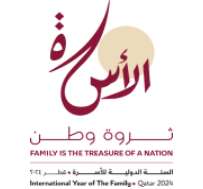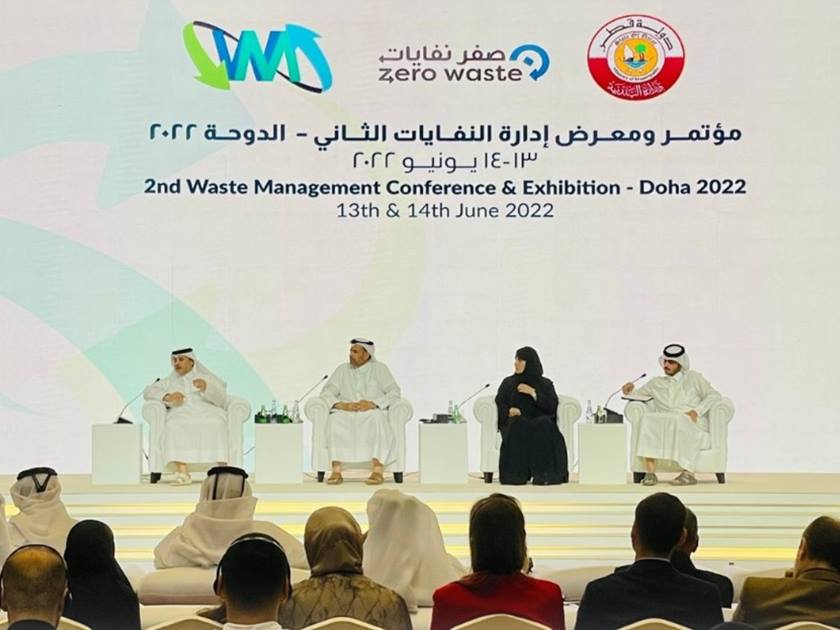Doha, June 14 (QNA) - HE Minister of Environment and Climate Change Sheikh Dr. Faleh bin Nasser bin Ahmed bin Ali Al-Thani affirmed that waste management is an important pillar in Qatar's National Environment and Climate Strategy, noting the importance of the Waste Management Conference and Exhibition organized by Ministry of Municipality.
During the ministerial panel discussion of the conference, His Excellency said that Ministry of Environment and Climate Change is interested in the need to involve the private sector in waste management and recycling. On this regard, he pointed out that, a sustainability department has been created, which will undertake the task of searching for new opportunities for waste management and recycling and reduce them, as well as the search for new investments to develop this sector.
The minister added that the ministry plays its role in issuing licenses for projects and following up on their environmental impact to ensure their safety and sustainability.
The panel discussion was attended by HE Minister of Municipality Abdullah bin Abdulaziz bin Turki Al Subaie, Vice President for Research and Graduate Studies at Qatar University Prof. Mariam Al Ali Al Maadeed and HE Acting Chairman of the Board of Directors of the Suhail Holding Group Sheikh Khalid bin Nawaf bin Mubarak Al-Thani.
The second Waste Management Conference and Exhibition witnessed three interventions from the Ministry of Environment and Climate Change. A presentation of the Ministry's most prominent competencies and the outcome of its achievements in the environmental field, inspection and environmental assessment to reduce the risks threatening the environment and causing climate change. A presentation by Engineer Mohamed Hossam Farag from the Ministry of Environment and Climate Change about the environmental assessment of waste management and a review of its sources, which include municipal and household waste and construction waste of all kinds.
In the presentation, Farag viewed the environmental impacts of industrial waste with high environmental risks, and the legislative and procedural framework for dealing with waste in the State of Qatar. He stressed that the Environmental Protection Law No. 30 of 2002 and its executive regulations for the year 2005 set the requirements for dealing with waste and the associated collection operations, storage, handling and processing. He pointed out to the Basel Convention, signed by the State of Qatar, which is an international treaty dealing with cross-border transport and disposal of hazardous waste.
For his part, Eng. Khalifa Al Dagher - from the Department of Radiation and Chemicals Protection at the Ministry of Environment and Climate Change - reviewed in a presentation the legislations and laws on hazardous waste in the State of Qatar. He explained that the legislations related to hazardous waste are based on the Environmental Protection Law and its executive regulations, which legislated the systems and procedures related to the control of hazardous waste and the prohibition of importing it to the country. The country also regulated the handling, treatment, recycling and disposal of hazardous waste with licenses from the related department in the ministry.
Meanwhile Eng. Mohamad Abdul Azim - from the Industrial Inspection & Pollution Control Department at the Ministry of Environment and Climate Change - addressed the department's role and specialties, which are one of the most important control tools for enforcing the Environmental Protection Law and its executive regulations, as it falls within the scope of its operations to monitor landfills and audit their work. At the same time, he explained the types of waste and ways to dispose them in accordance with the operating permits. (QNA)
14 June 2022
Minister of Environment Affirms that Waste Management an Important Pillar in Qatar's National Environment, Climate Strategy
Keywords
General, Qatar
News Bulletins
Most Read


